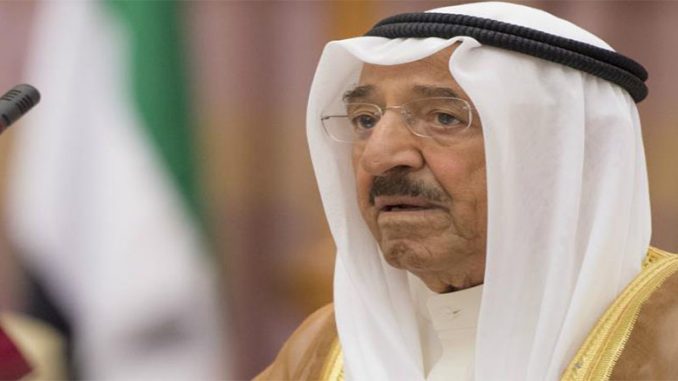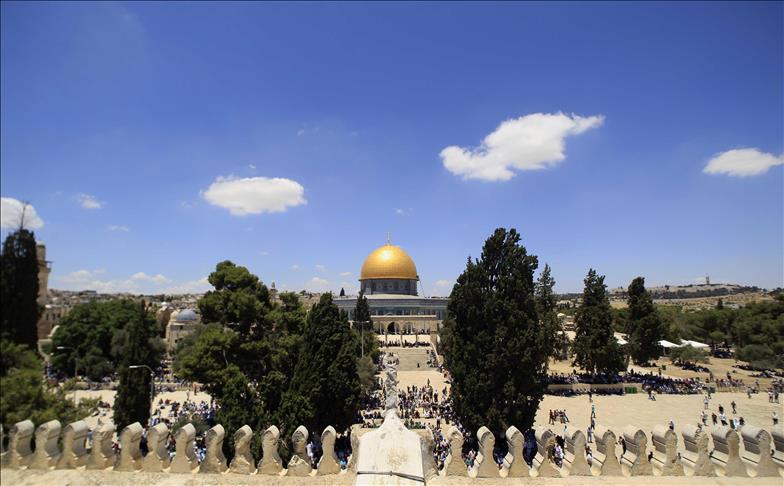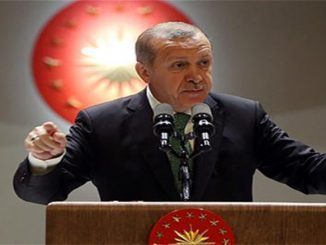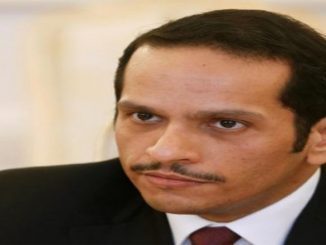
Known as a peacemaker, Kuwait’s 91-year-old ruler Sheikh Sabah al-Ahmad al-Jaber al-Sabah has died.
Kuwait’s 91-year-old Emir Sabah al-Ahmad al-Jaber al-Sabah died on Tuesday in a hospital in the United States.
“With great sadness and sorrow, we mourn … the death of Sheikh Sabah al-Ahmad al-Jaber al-Sabah, emir of the State of Kuwait,” said Sheikh Ali Jarrah al-Sabah, the minister in charge of royal affairs, in a television broadcast.
Born in 1929, Sheikh Sabah is widely regarded as the architect of modern Kuwait’s foreign policy – having served as foreign minister for nearly 40 years between 1963 and 2003 – when he became prime minister.
A longtime widower, Sheikh Sabah lived for years in a palace known as Dar Salwa, which was named after his daughter Salwa, who died of cancer in 2002. He is survived by two sons.
He became Kuwait’s emir in January 2006 after the death of Sheikh Jaber al-Sabah.
In August 2019, Kuwait acknowledged Sheikh Sabah suffered an unspecified medical “setback” that required he be admitted to hospital.
In July 2020, he flew to the United States seeking medical attention after undergoing surgery. A US Air Force C-17 flying hospital transported Sheikh Sabah from Kuwait to Rochester, Minnesota, home of the flagship campus of the Mayo Clinic. The high regard for Sheikh Sabah could be seen in the outpouring of support for him across the Middle East as he suddenly fell ill.
‘Valued discretion and moderation’
Sheikh Sabah drew on his decades as the oil-rich nation’s top diplomat to push for closer ties with Iraq after the 1990 Gulf War and solutions to other regional crises.
His 2006 ascension in Kuwait, a staunch US ally since the American-led war that expelled occupying Iraqi troops, came after Parliament voted unanimously to overthrow his predecessor, the ailing Sheikh Saad al-Abdullah al-Sabah, just nine days into his rule.
Yet, as Kuwait’s ruling emir, he struggled with internal political disputes, the fallout of the 2011 Arab Spring protests, and seesawing crude oil prices that chewed into a national budget providing cradle-to-grave subsidies.
“He represents the older generation of Gulf leaders who valued discretion and moderation and the importance of personal ties amongst fellow monarchs,” said Kristin Diwan, a senior resident scholar at the Arab Gulf States Institute in Washington, DC, who studies Kuwait. “No question he has suffered from the lack of deference and respect shown by the younger and more brash young princes holding power today.”
The emir had his appendix removed in 2002, two years after having a pacemaker fitted. In 2007, he underwent urinary tract surgery in the
When the emir was absent in the past, 83-year-old Crown Prince Nawaf al-Ahmad al-Sabah, the emir’s half-brother, was appointed acting ruler as per the country’s constitutional law. Sheikh Nawaf is an elder statesman who has held high office for decades, including the defence and interior portfolios.
Sheikh Sabah had pushed for diplomacy to solve regional issues, such as the continuing boycott of Qatar by four Arab nations.
The emir hosted a summit in 2018 that saw $30bn pledged to help rebuild Iraq after the war against the ISIL (ISIS) armed group. Sheikh Sabah also played a role in raising aid funds for Syrians suffering as a result of that country’s civil war, hosting international donor conferences in 2013 and 2014, and pledging hundreds of millions of dollars of Kuwaiti wealth.
One of his greatest challenges as a diplomat, however, came with the boycott of Qatar that began in 2017. Sheikh Sabah positioned himself as a mediator for the political dispute, which he warned in a White House appearance in 2017 could have led to an armed conflict.
“Thank God, now, what is important is that we have stopped any military action,” Sheikh Sabah said.
Those mediation efforts have yet to resolve the crisis, but he did manage to get Qatar’s prime minister to shake hands, on live television, with Saudi King Salman at a 2019 meeting in Mecca.
“We believe that wisdom will prevail,” Sheikh Sabah once said.
Sheikh Sabah’s death comes as the nation continues to fight the coronavirus pandemic, which has infected more than 103,981 people and caused 605 related deaths in the country of 4.1 million. Its health ministry said more than 95,500 people have recovered from COVID-19.
‘One learns from the past’
Sheikh Sabah’s life spanned two very different Kuwaits. He was born on June 16, 1929, just as the country’s pearl-diving industry would collapse. Within the decade, Kuwait would strike oil. Engineers would eventually confirm the tiny country had the world’s sixth-largest known oil reserves.
He became Kuwait’s foreign minister in 1963 after holding a number of other governmental posts. He would remain in that position for four decades, making him one of the world’s longest-serving foreign ministers.
His country’s greatest crisis came in 1990 when Iraqi leader Saddam Hussein invaded Kuwait and occupied the nation for seven months. Fleeing with other Kuwaiti officials to neighbouring Saudi Arabia, Sheikh Sabah collapsed and lost consciousness at one particularly stormy meeting of Arab leaders.
Even before the US entered Kuwait, Sheikh Sabah and others began suggesting a permanent American presence in the region might provide them protection from Iraq and others.
“One learns from the past and learns about it for the future,” Sheikh Sabah reportedly said. “One has to consider arrangements that would make not only my country stable but make the whole area stable.”
Today, Kuwait hosts some 13,500 American troops, many at Camp Arifjan south of Kuwait City, which is also home to the forward command of US Army Central.
Falling oil prices
Domestically, Sheikh Sabah faced the challenge of falling oil prices in recent years. He dissolved Parliament several times as legislators kept questioning appointed government ministers, some of them members of his extended family.
As the 2011 Arab Spring swept the region, Sheikh Sabah ordered 1,000 dinar ($3,559) grants and free food coupons for every Kuwaiti. But allegations swirled at the time that some legislators had been bribed $350m by the government to sway their votes, along with rumours they were involved in embezzling state funds.
Amid strikes and confrontations with police, protesters briefly entered Parliament, waving flags and singing the country’s national anthem. Sheikh Sabah nevertheless maintained power while still allowing protests, a rarity among Gulf leaders.
“Sheikh Sabah proved a savvy player of the internal politics of the ruling family,” Diwan said.
SOURCE : AL JAZEERA AND NEWS AGENCIES



